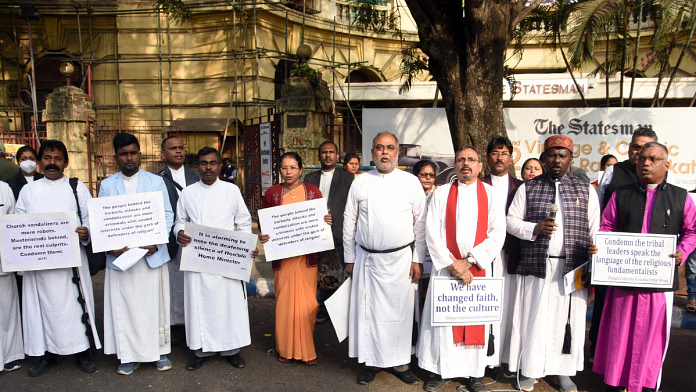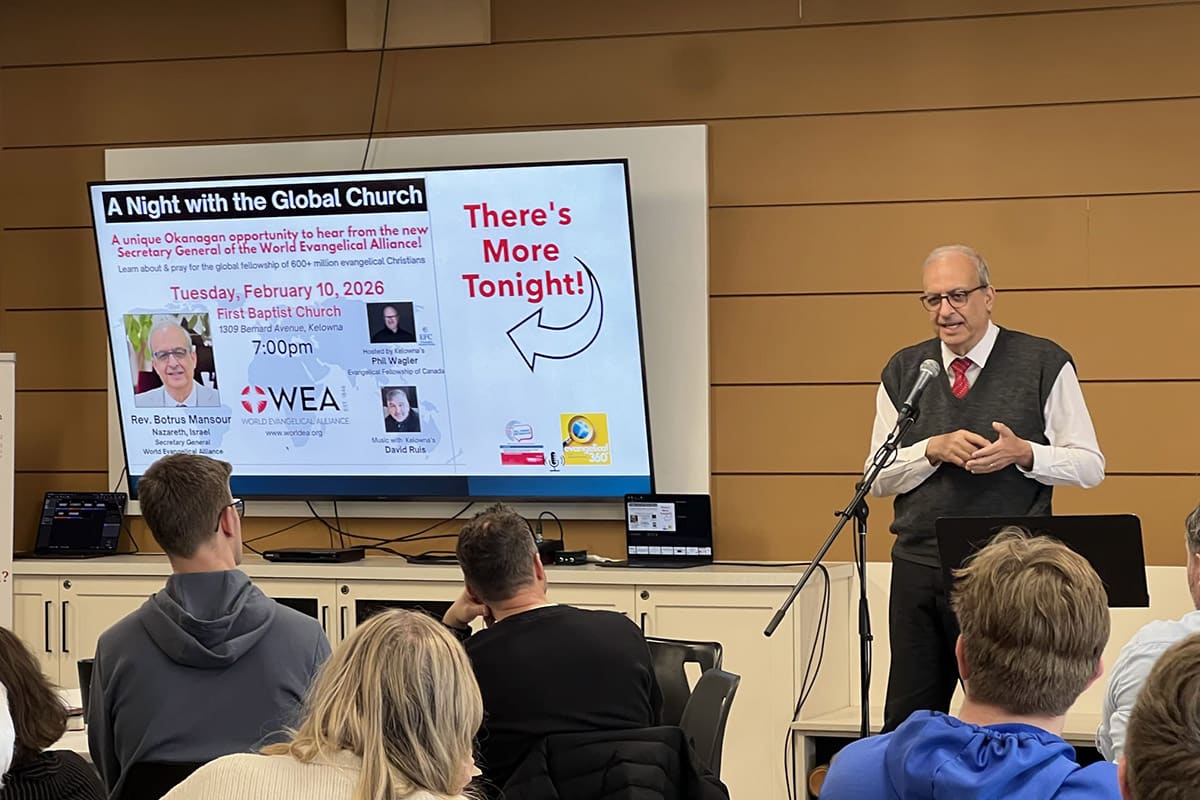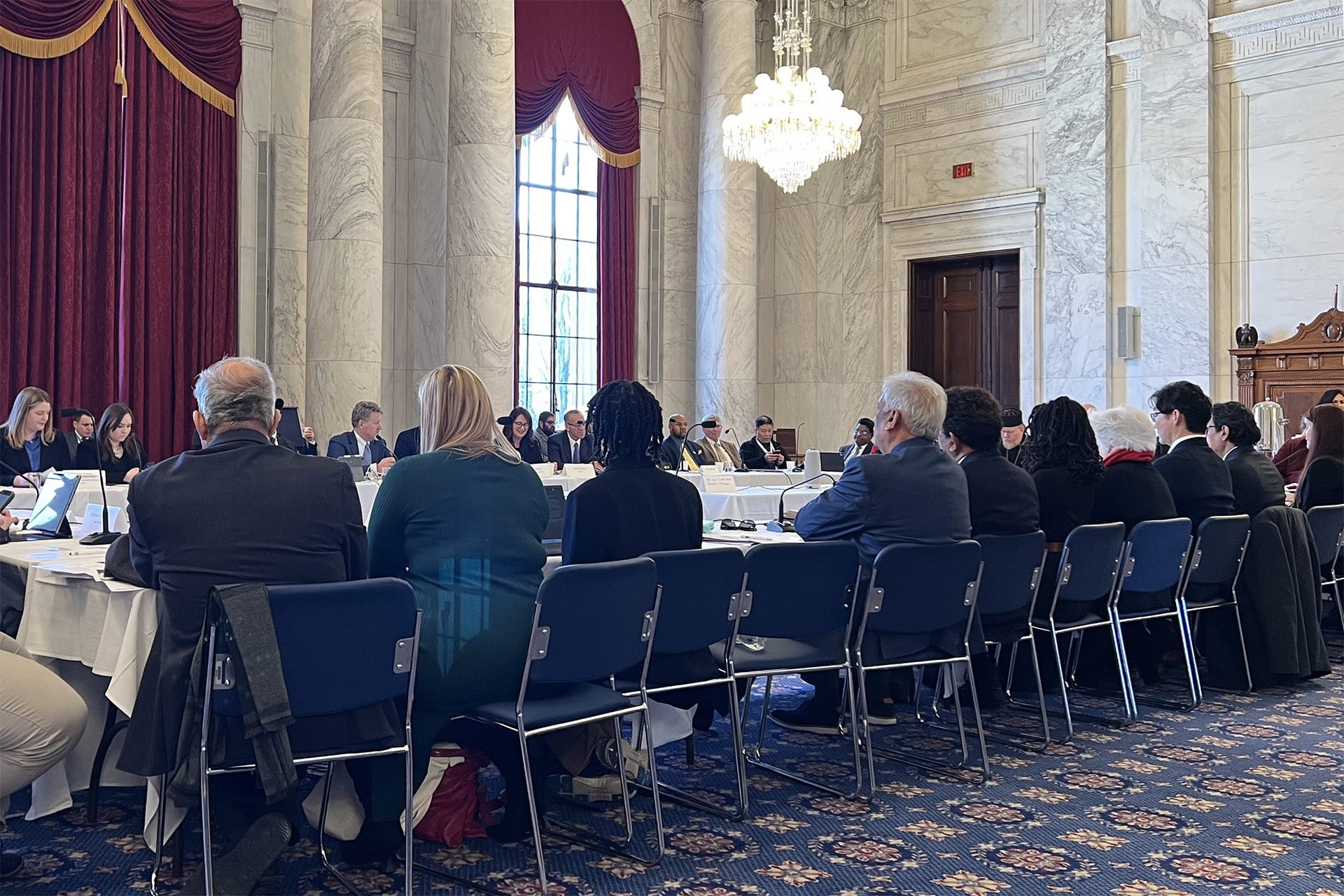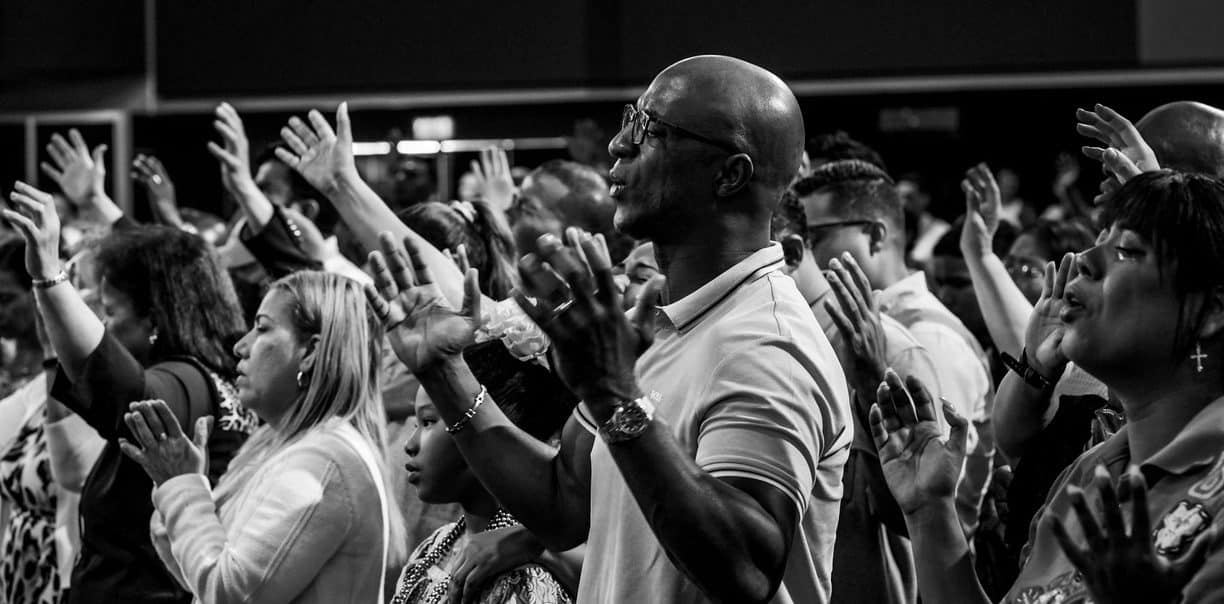Zenaira Bakhsh, 27 March, 2025 02:09 pm IST

In its report, Evangelical Fellowship of India says violent incidents rose from 601 in 2023 to 840 in 2024, including assault, church vandalism & wrongful arrests under anti-conversion law.
Violence against Christians in India surged in 2024, with over 840 incidents reported last year, 640 of which were verified, according to data from the Evangelical Fellowship of India (EFI) accessed by ThePrint.
The EFI’s Religious Liberty Commission (RLC), in its annual report released 10 March, highlighted a sharp rise in targeted attacks, including physical assaults, disruptions of prayer meetings, church vandalism and wrongful arrests under anti-conversion laws.
The report ‘Hate and Targeted Violence Against Christians in India Yearly Report 2024’ showed that the number of cases jumped from 601 in 2023 to 840 in 2024, a stark contrast to the 147 cases documented in 2014.
The RLC is an EFI initiative to promote religious liberty and seek justice for those who are “abused and oppressed”.
The report also revealed an average of four to five attacks on churches and pastors daily, with incidents peaking on Sundays, indicating targeted attempts to disrupt religious gatherings.
According to the report, January saw the highest number of incidents, with 71 reported cases, followed by 68 in September, 64 in March, and 62 in October.
“The general elections held in April and May coincided with 45 reported cases in each month, indicating that religious minorities remained vulnerable even during politically sensitive periods,” the report said.
The violence was widespread with Uttar Pradesh leading with 188 recorded incidents, followed by 150 cases in Chhattisgarh, 40 in Rajasthan, 38 in Punjab, 37 in Madhya Pradesh, 34 in Haryana, 27 cases in Jharkhand and Tamil Nadu respectively, 22 in Karnataka, and 21 in Bihar.
EFI general secretary Vijayesh Lal told ThePrint that the right to practice faith freely has been a cornerstone of Indian democracy but the report’s findings highlighted the growing vulnerability of Christian communities, with a sharp increase in incidents of violence, legal harassment and social exclusion.
“These challenges are not just about one community. They affect the fabric of our nation’s unity and harmony,” he said.
Lal appealed to the government, law enforcement and civil society to work together to uphold the “constitutional promise” of religious freedom for all. “Every Indian, regardless of faith, must be able to worship without fear and live in peace with dignity and respect.”
Key hotspots of persecution
Uttar Pradesh recorded the highest number of incidents, making it a focal point for religious persecution, the report said.
It noted that the Uttar Pradesh Prohibition of Unlawful Conversion of Religion Act, 2021, had been widely used to target Christians, with numerous pastors and believers arrested under allegations of “forced conversions”. Many of these individuals were merely conducting prayer meetings or providing spiritual guidance, the report said.
The report highlighted a case from Khaga village in Fatehpur district where Pastor Shivbharan was allegedly brutally beaten, forcibly shaved and paraded through the village. “Instead of receiving justice, he was booked under the state’s anti-conversion law,” the report said.
Chhattisgarh was another hotspot with 150 recorded cases of violence against Christians, according to the report. Tribal Christian communities faced not only physical violence but also economic and social exclusion, as “extremist groups” attempted to force them to renounce their faith, the report added.
In Basudeopur village of Jashpur district, Pastor Mahesh Mahanand and a group of worshippers, including women, were allegedly ambushed on 21 January, while returning from a lunch gathering, the report said. The pastor was left unconscious and required hospitalisation, according to the report.
A week later, on 29 January, Christian families were summoned to a village council in Narayanpur district and ordered to reconvert. When they refused, they were brutally attacked and threatened with expulsion, the report added.
The report also noted a rise in attacks on Christians in Punjab, traditionally considered more tolerant, along with Rajasthan. Punjab recorded 38 incidents last year, while Rajasthan witnessed 40 cases.
The report highlights the case of Pastor Bhagwan Singh, who was allegedly attacked while conducting a prayer service in Punjab’s Jalandhar. “He suffered severe head injuries and succumbed to them on 19 February, 2024,” the report said.
Misuse of anti-conversion laws
The RLC report highlights how anti-conversion laws, originally intended to prevent forced religious conversions, are increasingly misused to target religious minorities. In many cases, the burden of proof falls on the accused, making legal defense difficult and often resulting in wrongful imprisonment, it added.
For instance, in a case recorded on 5 May last year in Sipah village of Bihar, extremists allegedly stormed a church during a prayer service, assaulted worshippers and falsely accused them of forced conversion.
“Four individuals were detained before being released later that evening. This was the second attack on the same church in just three months,” the report notes.
As the violence grows, the report suggests that access to justice remains a major challenge for Christian victims, many of whom fear retaliation and police action, which often leads to widespread underreporting.
The report highlights the case of Maharajganj district in Uttar Pradesh, where Pastor Shailesh Kumar was allegedly severely beaten while attending a Palm Sunday fellowship on 24 March. He sustained life-threatening head injuries, but no significant legal action was taken against his attackers.
The EFI has called for urgent government intervention to address the escalating crisis, urging authorities to provide police protection for vulnerable Christian communities, hold extremist groups accountable, prevent the misuse of anti-conversion laws, strengthen legal safeguards for victims and ensure fair legal proceedings for religious minorities.
(Edited by Sugita Katyal)





Stay Connected